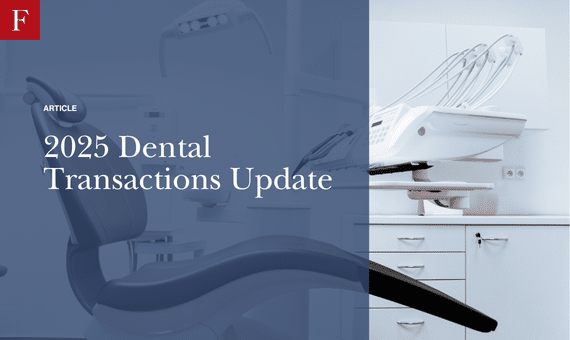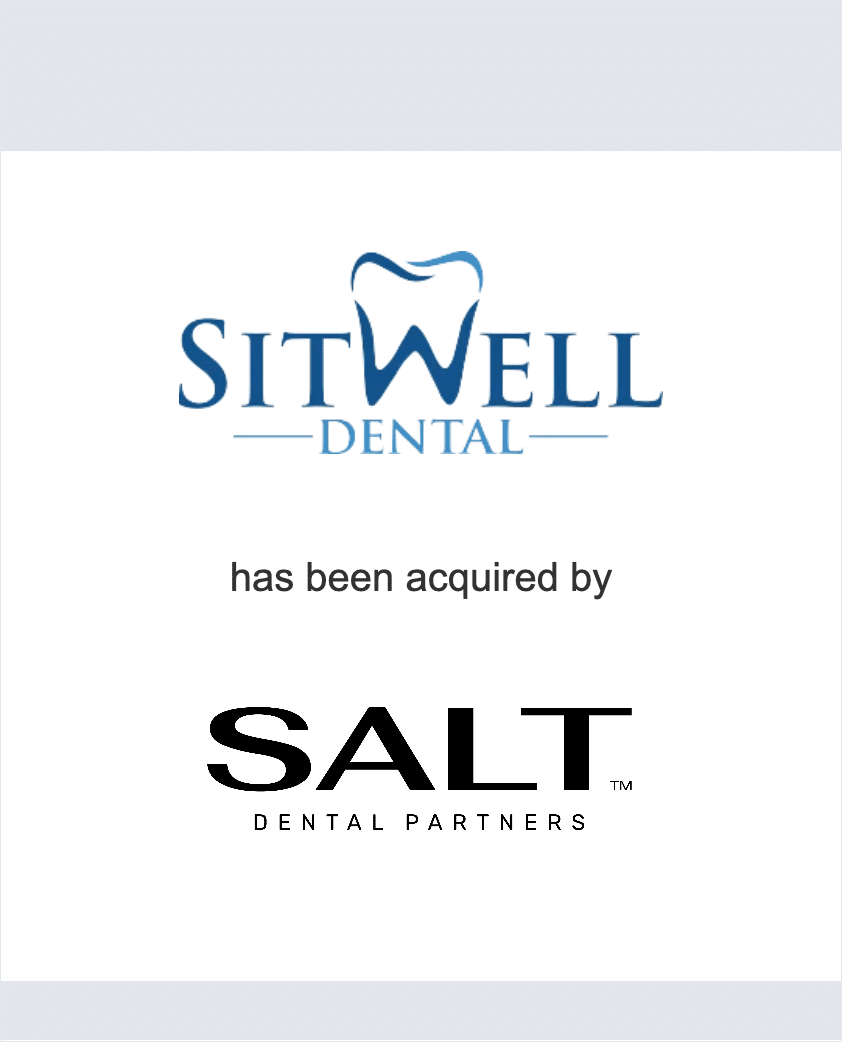
2025 Dental Transactions Update
As of June 2025, our research shows approximately 130 private equity backed DSOs operating across the dental services landscape – more than in any other healthcare vertical. While some are small organizations, most are sophisticated groups that complete multiple add-on transactions each year. The dental space remains an active and competitive marketplace where practice sellers can maximize value with an expert team of advisors.
DSO Creation
Private equity investment in dental practices began in the 1990’s when the first DSOs sought outside investors. Some of those firms like Heartland Dental, Smile Brands, and The Aspen Group still exist today.
The chart below shows DSO creation by year. We view “creation” as date of first financing (generally, partnering with a private equity firm). We feel this is the best method to separate dentist-owned practices from private equity-backed DSOs.
It illustrates that DSO formation began in the mid 1990’s and continued at a moderate pace into the early 2010’s, with one or a few DSOs being created each year.

Things started to accelerate in 2015, with a tremendous spike from 2019 to 2021 when more than 15 DSOs were created each year. Our investment banking team covers the full healthcare services landscape, and that acceleration reflects private equity’s overall surge in healthcare services investing from 2015 to present, especially in provider services. Hundreds of private equity-backed platforms were created during this period in dental, veterinary, the physician specialties, behavioral health, and home health and hospice.
Still, more platforms were created in dental than any other healthcare specialty.
Add-On Transactions
Once DSOs are created, they generally seek add-on transactions immediately. Given the size of this market, total transaction volume (including deals where DSOs acquire individual dental practices or other DSOs) has been extremely high. Over 100 transactions were completed each year since 2021 according to Pitchbook. We know that even more deals occurred since many small transactions are not reported.

The chart above illustrates total deal volumes accelerating as DSOs are formed and begin acquiring individual practices. Investing activity in subspecialties including orthodontics, endodontics, and pediatric dentistry further amplified deal volumes.
Future Transaction Trends
We expect high deal volumes to continue as many established, private equity-backed DSOs continue to acquire independent practices. Our own experience and feedback from DSO buyers suggests that quality practices will receive multiple offers if they complete a marketing process this year.
A Competitive Environment
Multiple factors make today’s market competitive. First, many of the private equity backed DSOs are preparing for their own sale processes. This creates an incentive to grow before a sale, as increasing the DSO’s EBITDA through acquisition will likely increase its transaction value. We have observed highly competitive offers in dental and other medical specialties when buyers are nearing their own sales.
Second, some of the younger DSOs are in an initial growth phase. To create value and establish themselves in this crowded marketplace, they need to complete add-on deals quickly.
The Importance of a Sell Side Advisor
A structured sell-side process is critical in a competitive market, especially when offers are highly variable. FOCUS Investment Banking’s sale preparation and marketing processes often result in offers differing by 40% or more, usually with a significant increase from initial to final offers.
Variability Among Offers
Our investment banking team has noted significant variability among DSOs in total offer amounts, how value is paid, and other key terms. Differences can include how much EBITDA is acquired (some buyers leave a retained ownership percentage with the sellers) and the multiple of EBITDA used to determine valuation.
Equally important is how those funds are paid. It is rare for dental practice sellers to receive 100% cash in their transactions. Typically, transaction structures with private equity backed DSOs include rollover equity, where a portion of the transaction proceeds are paid as stock in the buyer’s organization. Sellers can realize cash value from that rollover equity when the buyer DSO is sold (any gain depends on how successful the organization is in the interim).
We have also seen some buyers introducing seller earnouts or seller loans. Seller earnouts occur when a portion of transaction proceeds is withheld and paid to the seller if a certain operational milestone is met. These structures are often intended to incentivize growth. Seller loans, on the other hand, are simply loans paid to the seller over time.
Creating Competition and Choice
A strong pool of buyers and variance among offers makes it extremely important for sellers to engage an investment banker to run a structured and competitive marketing process.
At FOCUS, our process is designed to create competition among buyers and arm them with the information they need to bid aggressively. Our clients usually review multiple offers side by side, comparing their strengths and weaknesses. This puts the seller and their advisors in a strong position to negotiate the terms of each offer in a competitive environment
A Special Opportunity for Large and Specialty Practices
While the market for most dental practices is very strong, we believe an even more competitive selling opportunity exists for specialty practices and larger general dentistry practices, especially those with five or more dentists and multiple locations. We expect higher EBITDA multiples and transaction values for sellers in these categories.
Putting It All Together
Recent Dental Transaction

Contact Eric Yetter ([email protected]) or Andy Snyder ([email protected]) today for a no-pressure conversation.














